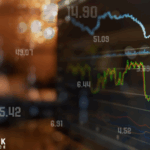Investment in sustainable technology is continuously rising, reflecting a shift in corporate priorities towards reducing carbon emissions. Microsoft (NASDAQ:MSFT) is stepping up its efforts in this direction by investing in Fortera, a company dedicated to producing low-carbon cement. Through this collaboration, Microsoft secures a supply of green building materials as part of its commitment to decrease the environmental impact of its data centers. The initiative highlights the growing focus on decarbonizing sectors that are traditionally hard to green.
Other news reports show Microsoft previously making similar strides toward sustainable practices, often in collaboration with innovative startups. This follows its strategy not just in building materials, but also in energy consumption and efficient resource management. While Fortera represents the next step, the involvement of companies like Boston Metal and CarbonCure indicate Microsoft’s consistent strategy to invest in technologies that promise scalable green solutions.
Why is Cement a Target in Carbon Reduction Efforts?
Cement production is responsible for a notable portion of global greenhouse emissions. Around 8% of the world’s carbon dioxide emissions stem from cement manufacturing. Fortera aims to tackle this challenge, advancing its “ReCarb” technology, which transforms CO2 into a useful component in cement production. This technology permits significant emission reductions while maintaining cost-effectiveness. This collaboration opens new avenues in addressing these emissions, crucial for companies like Microsoft aiming for carbon neutrality.
What Other Steps is Microsoft Taking for Sustainability?
In its quest to address the carbon footprint of its operations, Microsoft has been actively engaging with the innovation ecosystem. Recent initiatives include procuring low-carbon cement from Sublime Systems and green steel from Stegra. The tech giant also pioneer the use of wood in data center construction, highlighting a broad approach to sustainability. These actions underscore its strategic commitment to sourcing sustainable materials.
According to Fortera’s CEO Ryan Gilliam, Microsoft’s participation showcases the potential of novel technologies to bridge the gap to commercialization. This partnership is significant, illustrating how large corporations can exert influence on challenging market dynamics and demonstrate feasibility. Fortera benefits from Microsoft’s experience in overcoming decarbonization challenges, allowing it to solidify its market position.
Microsoft’s previous investments into sustainable materials and practices have shown an ongoing commitment to reducing environmental impacts. Stakeholders such as Fortera can leverage this support to scale production capabilities. Brandon Middaugh of Microsoft highlighted their attractive potential for emission reduction, affordability, and compatibility with current infrastructures.
While the short-term benefits are evident, the long-term impacts are critical. By investing in sustainable building materials, Microsoft is paving the way for more industries to follow suit in carbon reduction. As the world grapples with climate challenges, strengthening these technologies is essential, with corporate giants playing a catalytic role.










